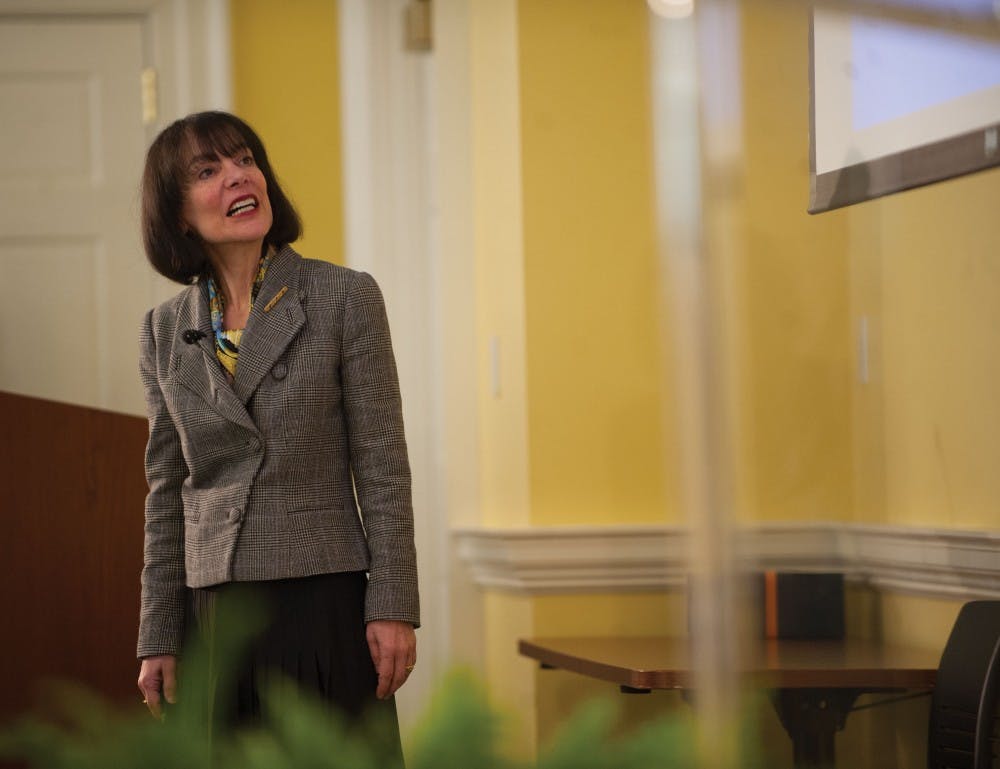The Curry School hosted Stanford Psychology Prof. Carol Dweck Tuesday to give the Walter Ridley Distinguished Lecture, an annual lecture held to honor the first African-American to graduate from the University, who received a doctorate from the Education School.
Dweck’s presentation focused on her book “Mindsets,” which examines how teachers can shape their students’ perceptions of their own abilities and in turn their capacity to learn new things.
In her book, Dweck distinguishes between fixed and growth mindsets. People with fixed mindsets believe their capabilities are unchangeable and so choose tasks within their comfort zone rather than risk failure.
“[Having a fixed mindset] leads [students] to shy away from challenges and to wilt in the face of obstacles because they’re worried about not being smart enough,” Dweck said.
This contrasts with growth mindsets, wherein people believe their abilities can be developed and are therefore more willing to confront challenges and make mistakes. Ultimately, Dweck said, students with growth mindsets are more successful.
“[Individuals with growth mindsets] don’t necessarily think everyone’s the same or that everyone can be Einstein,” Dweck said. “But they understand that even Einstein wasn’t Einstein before he put in years of labor.”
Teachers play an important role in developing these mindsets in young students, Dweck said.
“We’ve found that teachers with a fixed mindset, when a student doesn’t do well in math or an entry level exam, rush in and comfort them,” Dweck said. “They say ‘don’t worry, not everyone can be a math person.’ What are they telling that person? Often when students are stuck in math, it’s temporary. But when teachers tell students not to be a math person, it would be permanent.”
In an effort to change fixed mindsets, Dweck has worked to create a new program called Brainology which teaches students how their brains work in an effort to encourage them to challenge themselves academically.
“They learn that every time they stretch out of their comfort zone to learn something new, their brain forms new connections and they become smarter,” said Dweck. “It’s a thrilling idea for them. [They think] effort makes you dumb, but we tell them no, that’s what makes you smarter.”







